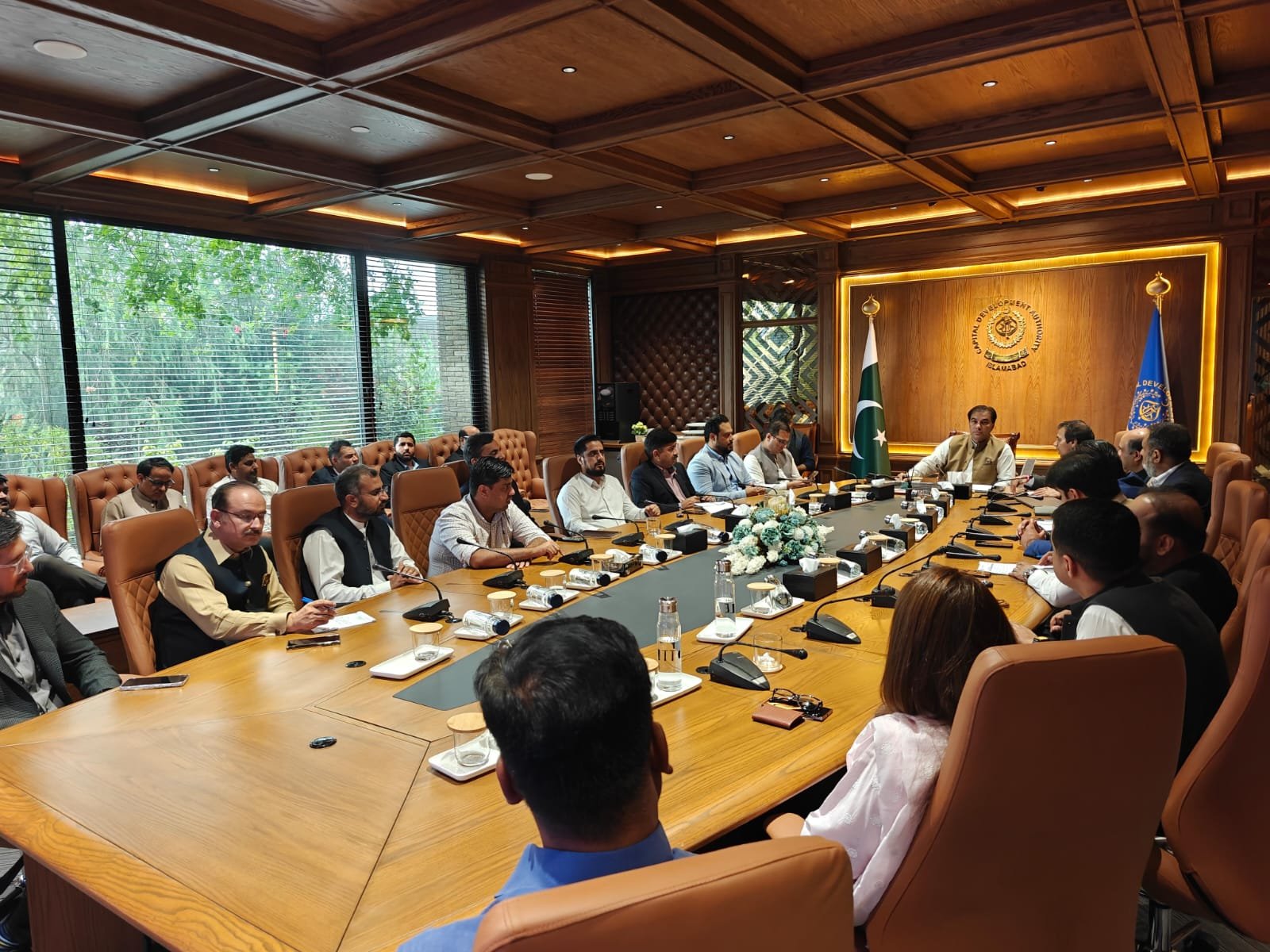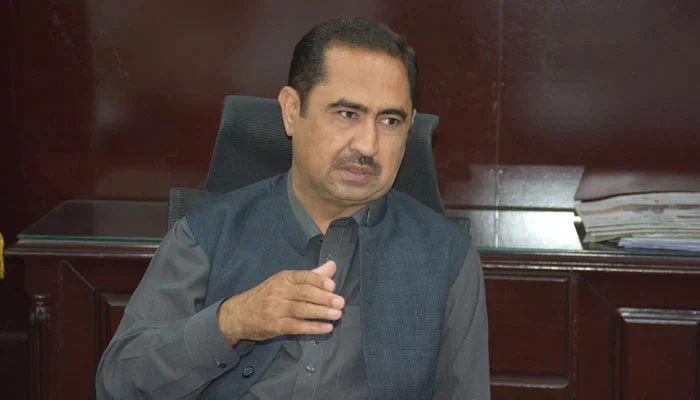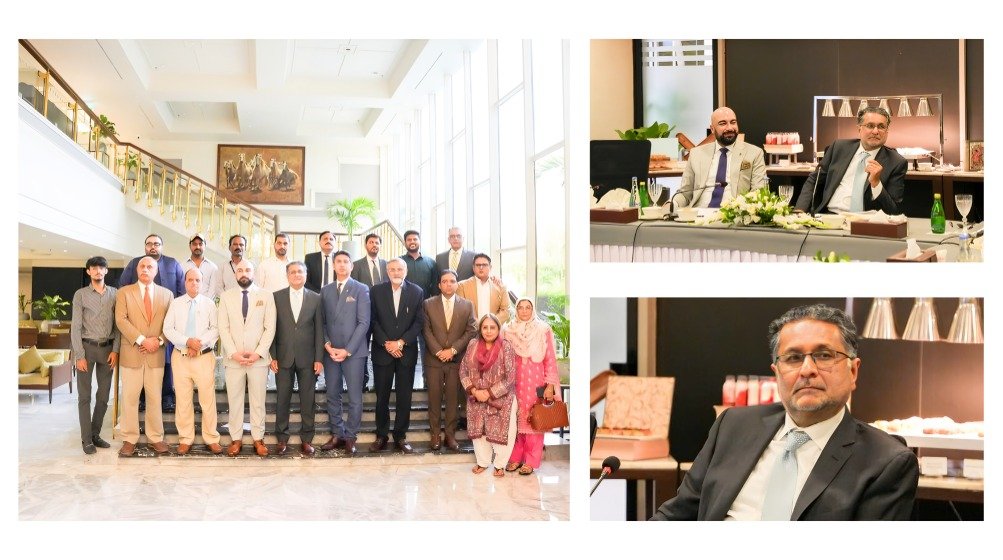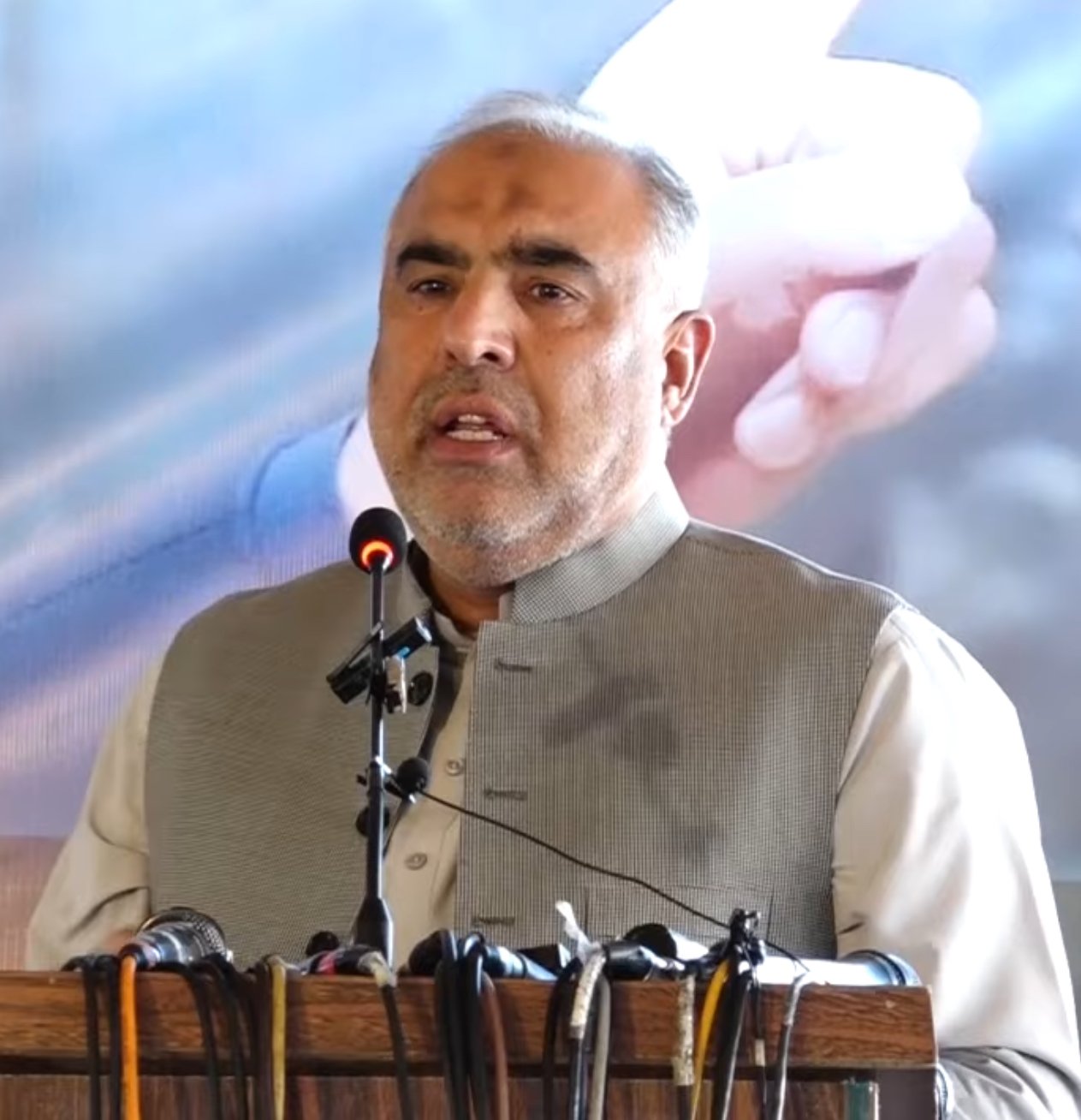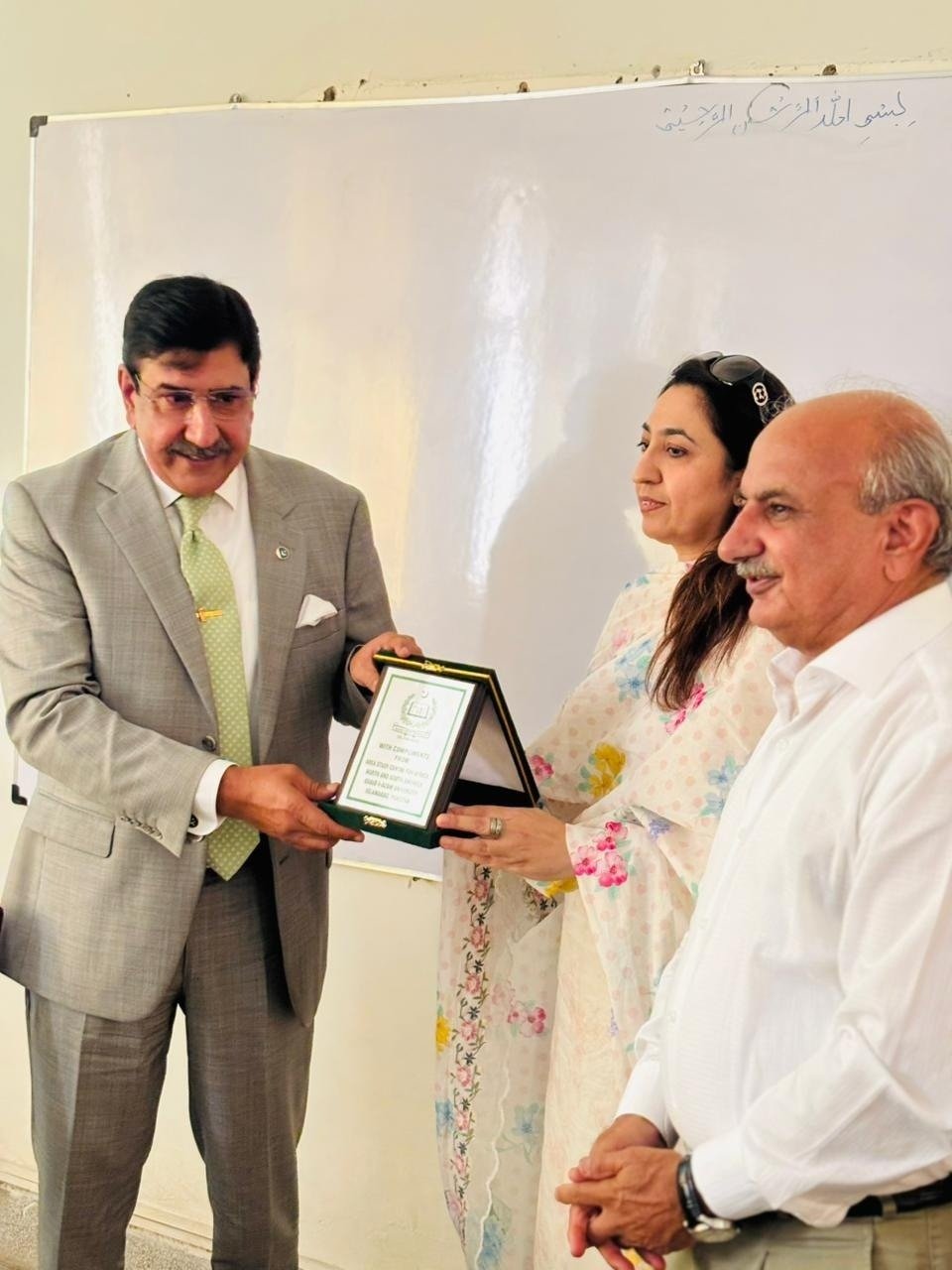ISLAMABAD – The Capital Development Authority (CDA) has intensified efforts to promote a cashless economy in Islamabad. The move aligns with the national vision for digital transformation. A high-level meeting, chaired by CDA Chairman and Chief Commissioner of Islamabad Muhammad Ali Randhawa, reviewed the progress of digital payment initiatives across the federal capital.
Senior officials from CDA, the ICT administration, the Ministry of Information Technology, and representatives from banks and telecom companies attended the session. The meeting mainly focused on accelerating the adoption of QR code-based payment systems and expanding digital infrastructure citywide.
Member Finance Tahir Naeem briefed participants on the implementation of Raast QR codes for payments and collections. Moreover, he said that in line with Prime Minister Shehbaz Sharif’s digital economy agenda and Interior Minister Mohsin Naqvi’s directives, the CDA has made digital payments mandatory across its services.
So far, more than 5,000 merchants and shopkeepers in Islamabad have adopted the Raast QR system. In addition, weekly bazaars in Sector H-9 and Sector G-6 have successfully integrated QR code payments. This marks a significant milestone in the city’s transition toward a cashless economy in Islamabad.
Efforts are also underway to ensure instant QR code visibility in major commercial centers and rural areas. Furthermore, the scope of implementation is expanding to include all Markazs, shopping malls, and Class III markets. This expansion aims to make digital payments accessible and convenient for both traders and consumers.
The CDA’s One Window Facilitation Center has also moved to a fully cashless model. At the same time, QR code-based payment options are now available in metro buses and electric feeder buses, improving transparency and efficiency in public transport services.
Banks have also begun sharing real-time data through a centralized dashboard. Consequently, this system will help monitor progress and identify gaps in adoption. Chairman Randhawa emphasized the need for coordinated public awareness campaigns to educate citizens about the benefits of digital payments.
He further directed banks and telecom companies to offer incentives that encourage traders and customers to adopt cashless transactions. To support digital infrastructure, CDA has therefore waived Right of Way (ROW) charges for laying fiber optic networks, removing a major barrier to connectivity.
Chairman Randhawa also called for active engagement with trade unions and market associations. In addition, he urged stakeholders to use electronic, print, and social media to amplify outreach and build trust in digital systems.
“CDA and the district administration are acting as facilitators,” he said. “We must create harmony among banks, traders, and consumers to ensure smooth adoption of cashless solutions.”
He concluded that with effective coordination, Islamabad can emerge as Pakistan’s first fully digitized and cashless city. Ultimately, these initiatives will promote secure, fast, and transparent financial transactions, contributing to economic modernization and better governance.


